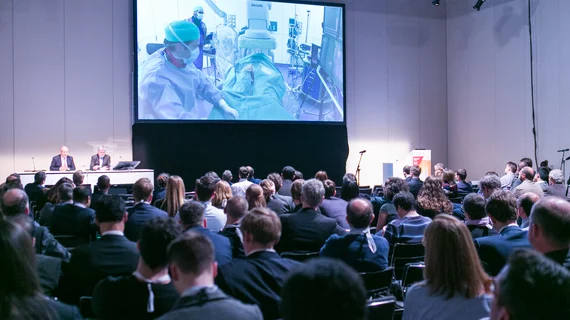AFib, AI and heart-healthy diets: European Society of Cardiology previews EHRA 2022
ACC.22, the annual meeting of the American College of Cardiology, isn’t the only industry conference taking place in early April: EHRA 2022, the yearly get-together hosted by the European Heart Rhythm Association (EHRA), is scheduled for April 3-5 at the Bella Center in Copenhagen, Denmark.
EHRA 2022, a scientific congress hosted by the European Society of Cardiology (ESC), is aimed at electrophysiologists and other heart specialists from all over the world. Topics will include atrial fibrillation (AFib) and other heart rhythm disorders, evolving technologies, AI, pediatric cardiology, obesity, diet and much more.
One area researchers have focused on in the last year is AI’s potential as a tool for predicting sudden death in patients who may be experiencing a heart rhythm issue.
“The hope is that we can use these techniques to identify from an electrocardiogram (ECG) those at the highest risk of sudden death,” Isabelle C. Van Gelder, MD, PhD, a professor at University Medical Center Groningen in the Netherlands and scientific chair of the EHRA, said in a statement. “That would help us to select who should receive a defibrillator to prevent an untimely death.”
Attendees can also expect a sneak preview of the ESC’s upcoming ventricular tachycardia guidelines and an update on the relationships between a person’s diet and their risk of developing AFib and other significant disorders.
“Improving lifestyle is one of our best medicines,” Van Gelder added. “There is increasing evidence that body fat around the heart is able to infiltrate the heart and set the stage for arrhythmias. Adopting good habits is not easy, but it is incredibly important for maintaining health.”
Additional information on EHRA 2022, and a look at other upcoming EHRA and ESC conferences, is available here.
Related Heart Rhythm Content:
Screening older patients for AFib during regular care is feasible, but not productive
DOACs an effective substitute for VKAs after AFib patients undergo bioprosthetic valve replacement
Electrophysiologists debut new technology that builds interactive cardiac maps out of 12-lead ECGs
Cardiac MRI a powerful tool for predicting sudden cardiac death, arrhythmia after CIED implantation

